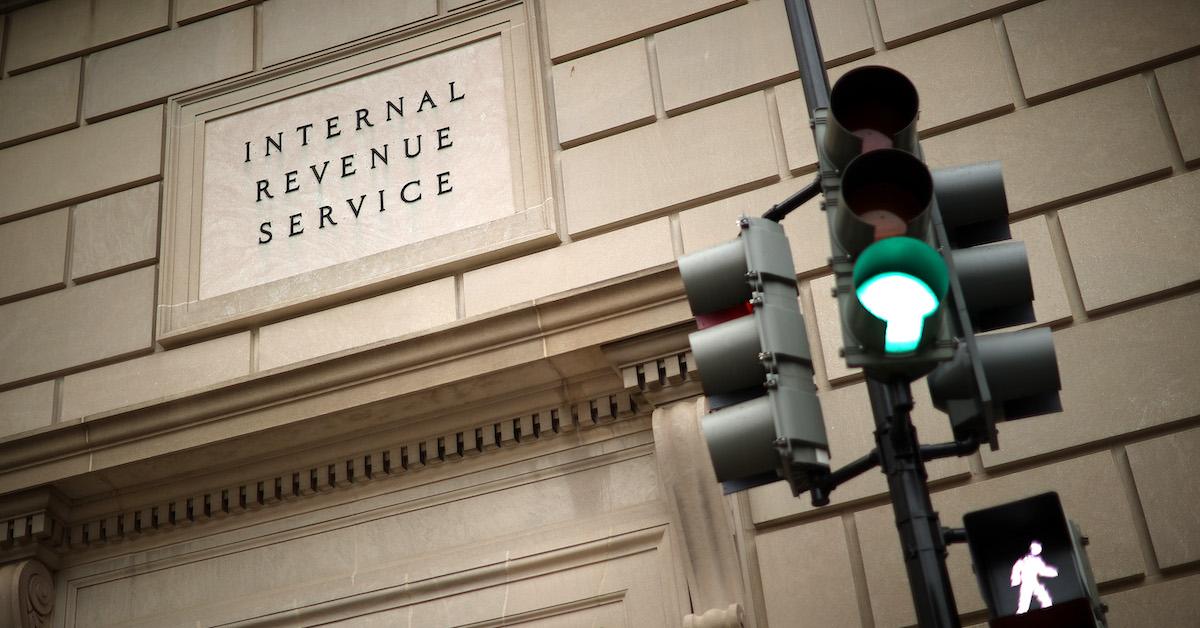Why Didn't My Employer Take Out Federal Tax? What You Should Do
Tax errors are commonplace and are usually made by the person doing the filing. Why don't some employers take out federal tax? How can it be fixed?
Jan. 28 2022, Published 12:59 p.m. ET

Frustrated employee sits at computer
Arguably one of the most frustrating times of the year is tax season. Nearly 80 percent of people make mistakes on their taxes, which can lead to delays and waiting for everything to process. For some filers, their employers didn't withhold federal income tax. Why do some employers not take out federal tax?
What happens when your employer doesn’t withhold federal taxes, and how can it be fixed? Generally, when federal taxes aren’t withheld, it can be due to several reasons. The employer still needs to be contacted. Here are some reasons why your federal tax might not have been withheld.

Snapshot of the IRS building
What do federal taxes go towards?
Federal taxes are imposed by the IRS and calculated based on earnings of individuals and companies, this includes trusts and any other legal entity. Wages, salaries, commissions, bonuses, and passive income are just a few things considered when federal income tax is calculated.
Taxes are determined by income and the bracket that income falls in. On average, federal tax rates are from 10 percent to 37 percent with a federal corporate tax rate at a flat 21 percent. Federal income tax is perhaps the largest source of revenue for the government, which makes the situation serious when federal income taxes aren't paid.
Why weren't your federal taxes withheld?
Tax preparation company H&R Block compiled a small list of things that can occur for federal taxes to not be withheld. If a person is considered to be an independent contractor, federal tax isn't withheld from the payment. In this case, generally, no tax is withheld by the employer, this includes Medicare and Social Security. In situations like these, a person will likely receive a Form 1099-MISC instead of a W-2. To report income and related expenses, a Schedule C needs to be completed.

Two businessmen working together
Also, a person would need to pay Medicare and Social Security tax by completing a Schedule SE. Another instance that can occur is when a person claims an exemption on their Form W-4. To ensure that certain requirements are met and the proper amount is withheld, people are encouraged to consult with their company's HR department.
What should you do if your employer doesn't withhold federal taxes?
Not withholding federal taxes is usually a mistake by the employer. In some situations, taxes might have actually been withheld but the person was given the wrong W-2. In this case, the employer is required to issue a corrected W-2. If the employer made a mistake, the employee should contact them. Most situations allow for unpaid taxes to be owed when a person files their return.
There are situations where employers can illegally misclassify employees as independent contractors in an attempt to evade paying the employer portion of payroll taxes. If this is the case, the employee can report it to the IRS and possibly sue the employer so they pay their share. However, even in this situation, the employee will still be responsible for the unpaid taxes. If an exorbitant amount is owed, it’s likely that a payment plan can be created.
